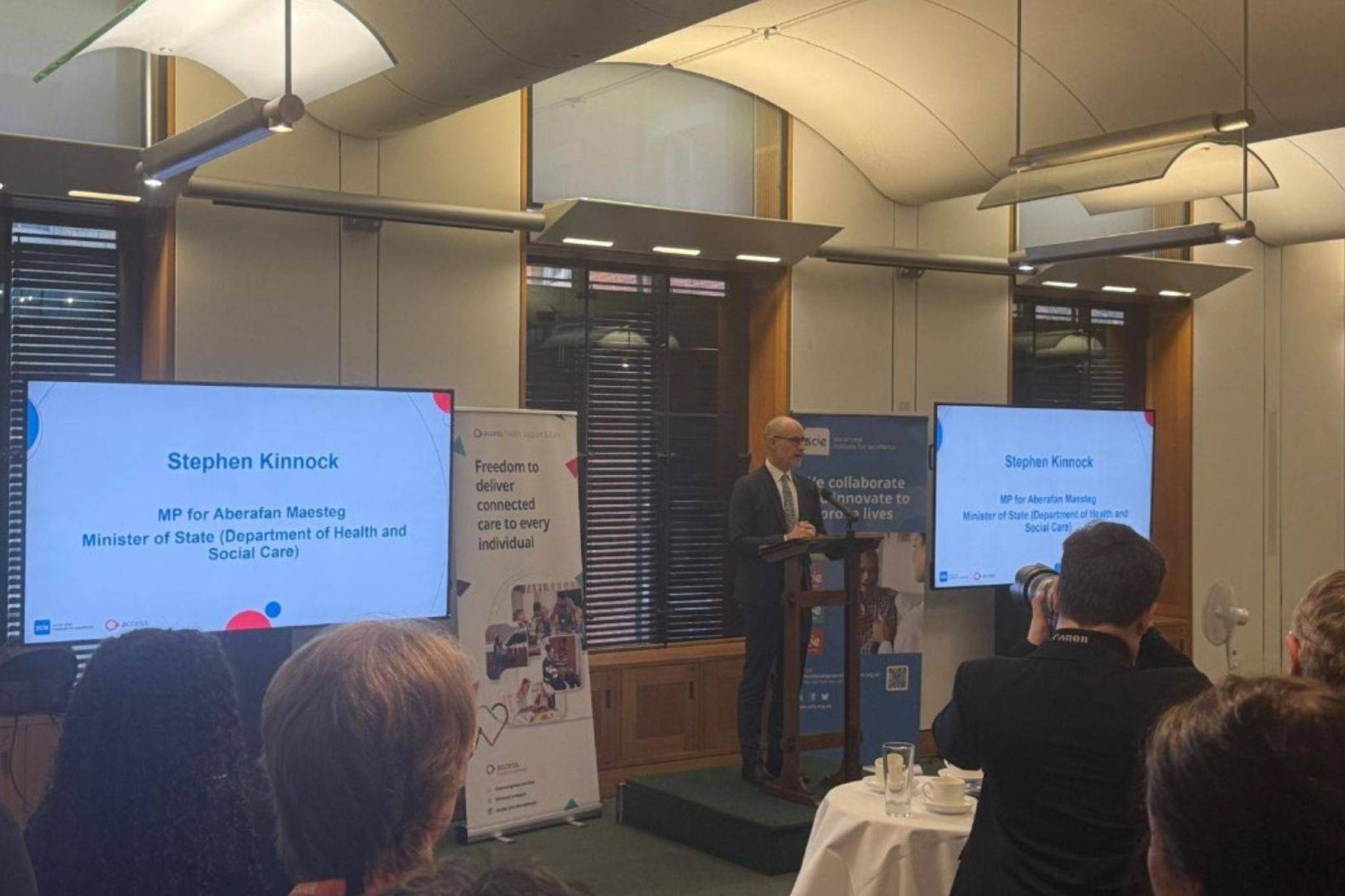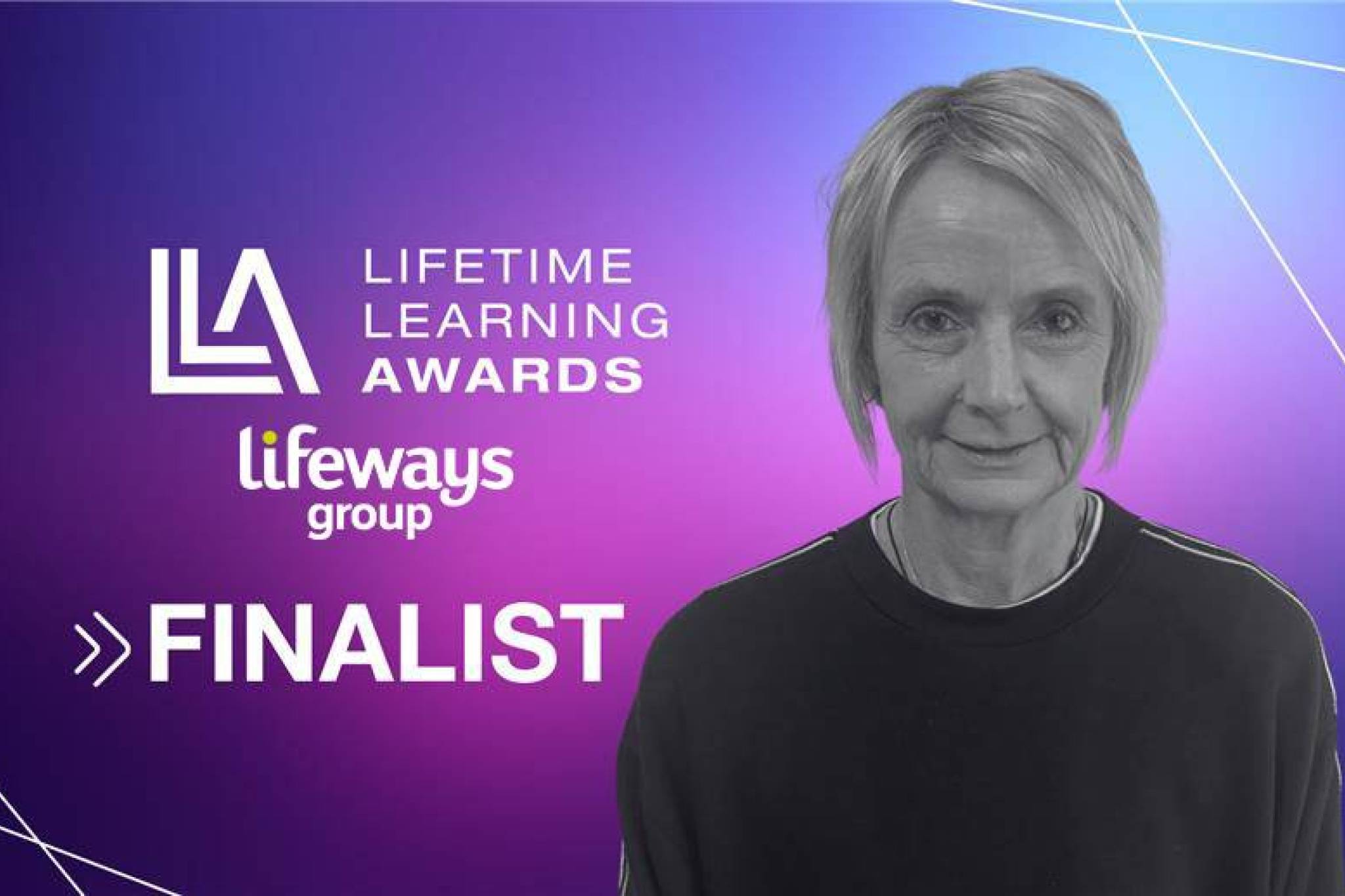Support for adults with complex care needs
The term ‘complex care’ encompasses a range of needs requiring ongoing essential specialist support. People with complex needs usually live with one or more conditions which means they require specialised support to manage their symptoms and daily tasks. Examples of such conditions include neurological disorders, disabilities, and complex health needs.

Supported living and residential care for people living with complex care needs
Usually, a person will have a primary diagnosis such as a learning disability, acquired brain injury or mental health condition and in addition have several associated conditions or diseases alongside that such as a heart condition, epilepsy, or diabetes.
Enabling people with complex care needs to live the kind of life they want requires careful planning before they move in. Training plays a vital role in this, ensuring we have highly skilled, competent, and knowledgeable colleagues to provide a high level of care.
At Lifeways we have developed a number of bespoke learning modules which equip colleagues to support people with designated health care tasks. This can include things like diabetes management, catheter care, PEG/PEJ care amongst other things.
This approach means appropriate care can be undertaken by familiar people, rather than waiting for NHS or external health professionals, with care based around an individual’s routine ensuring a more person-centred approach and better outcomes.
Colleagues feel confident and equipped to respond to needs, knowing when to seek medical advice so issues are quickly picked up leading to early interventions and preventing unnecessary hospital admissions.
This pro-active way of working can lead to a person receiving preventative medical care allowing them to remain at home rather than in a hospital or if they are admitted, as they require medical care, they can be discharged home earlier knowing their support team have the skills to care for them.
As well as complex health needs, complex care can also include people that display behaviours that may challenge.
Quality of life through Positive Behaviour Support
Our highly trained support workers and specialist teams employ a variety of trusted methods including Positive Behaviour Support (PBS) which employs person-centred approaches to ensure a positive impact on each person's quality of life - supporting people effectively with their needs and understanding the impact that a person’s condition or disease has on their life.
Each Lifeways service has access to our in-house Specialist Support Team made up of Specialist Practitioners and Trainers, led by Lead Specialists and headed up by the Specialist Support Manager. They support colleagues by offering tailor made training and competing robust assessments to understand behaviour.
The team’s approach focuses on meaningful engagement for the people we support, understanding the reasons behind why behaviours that may challenge occur, to then provide person-centred proactive strategies to help reduce them without putting the person or others at risk. The aim of PBS is to increase quality of life, promote meaningful engagement, build skills and promote choice and control in everyday life.
The Specialist Support Team works really well as a wrap-around service that is available to everyone who needs it. We work up and down the country supporting staff teams by providing tailor-made training and completing robust assessments in order to understand behaviour.
Jo Lourmpa, Specialist Support Manager at Lifeways
Elliot's story
Elliot* who has a diagnosis of autism, learning disabilities, Tourette’s syndrome and mental health conditions, moved to Lifeways in 2017 from another service provider. Elliot was displaying high levels of self-injurious behaviour and would also show verbal and physical aggression towards his support team, with incidents lasting for two to four hours at a time.
A functional behavioural assessment and PBS plan was implemented. Coaching was provided to the staff team around Elliot and his diagnosis, particularly around how his autism and his Tourette’s presented in his day-to-day life.
A routine was developed and implemented alongside behaviour support strategies which allowed his support team to be more consistent in their support and build up confidence to take Elliot out in the community to expand his interests. He was able to go feed the ducks, go bowling and go out for meals which he was previously unable to participate in.
The support team built up trusting relationships with him and this saw a reduction in physical aggression and self-injurious behaviour and when they did occur, they were for significantly shorter periods of time. As a result Elliot’s relationship with his support team improved and he is able to enjoy a vastly improved quality of life.
(*name changed to protect individual’s privacy.)
At Lifeways we support thousands of people with complex needs every day incorporating best practice and continually developing training programmes to helps people learn new skills, communicate more effectively and enjoy more choice and control in their everyday life.

Download our Positive Behaviour Support brochure
Read more about our approach to complex care and how Positive Behaviour Support plays an important part.
Download our PBS brochureRelated news
News

10 February 2026
Lifeways proud to attend launch of national care standards report at Parliament
News

6 February 2026
Lifeways celebrates major turnaround at south coast service
News

4 February 2026
